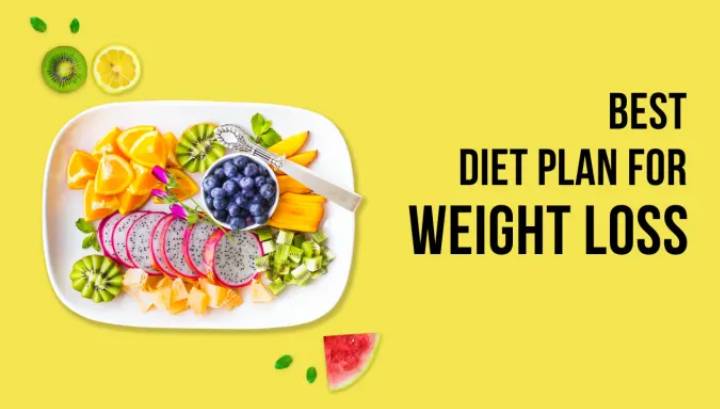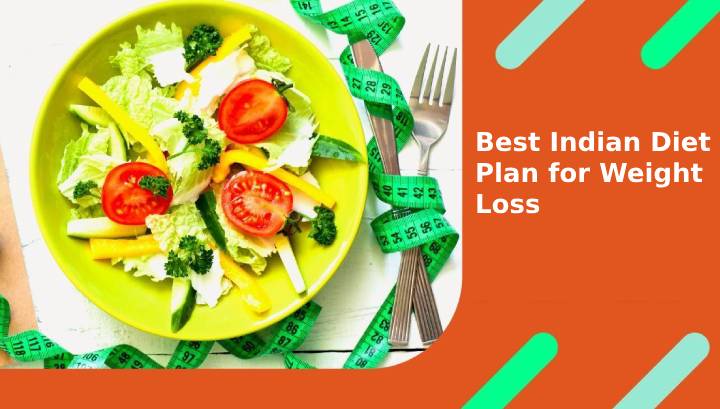Achieving your weight loss goals can be challenging, but with the right diet plan tailored to your needs, you can progress significantly towards a healthier you. India, with its rich and diverse culinary heritage, offers many delicious and nutritious options that can aid in shedding those extra pounds.
Consult For Weight Loss And A Diet Plan today
Our comprehensive Indian diet plan for weight loss combines the best of traditional Indian cuisine with modern nutritional principles. We understand that everyone has unique dietary requirements and preferences, so our plan is flexible and customizable. Whether you’re a vegetarian, vegan, or have specific dietary restrictions, we have various options to suit your needs.
Our expert team of nutritionists has carefully curated a selection of wholesome and balanced meals, incorporating a wide range of fresh fruits, vegetables, whole grains, lean proteins, and healthy fats. Our meticulously designed diet plan allows you to enjoy a flavorful culinary experience while achieving your weight loss goals.
Start your weight loss journey today with our best Indian diet plan and embrace a healthier, fitter lifestyle.
Why Do you Need to keep Your Weight in Check?
Keeping your weight in check is crucial for maintaining good overall health and well-being. Excess weight can lead to many health issues, including heart disease, diabetes, high blood pressure, and joint problems. Here are some compelling reasons why you need to prioritize weight management.
Read more: 5 Successful Fat Loss / Weight Loss Tips from Experts
1) Maintaining a healthy weight reduces the risk of developing chronic diseases. Excess weight strains your organs and increases inflammation, which can lead to severe health conditions in the long run.
2) Weight management improves energy levels and enhances physical performance. If you are overweight, then completing daily chores becomes much more challenging. By maintaining a healthy weight, you’ll feel more energetic, experience better stamina, and be able to engage in physical activities with ease.
3) Managing your weight positively impacts mental health. Research shows that obesity is associated with an increased risk of depression and anxiety. On the other hand, maintaining a healthy weight can boost self-esteem and improve body image, leading to improved mental well-being.
Foods Groups to be Included
When embarking on a weight loss journey, you must include specific food groups that can support your goals effectively. Incorporating the right foods will provide essential nutrients, aid in satiety, and promote overall well-being.
Also read : Eating Your Food In The Right Proportion is the key to weight loss
Here are the essential food groups to include:
Lean Proteins
Foods like chicken breast, fish, tofu, and legumes are excellent lean protein sources. Protein helps build and repair tissues, boosts metabolism, and promotes feelings of fullness, making it an essential component of a weight loss diet. ·
Whole Grains
Some examples of whole grains are oats, corn, barley, farro, Graham flour, Oatmeal, and Brown rice. These fibre-rich foods provide sustained energy, aid in digestion, and help control blood sugar levels. They also promote a feeling of fullness, preventing overeating. ·
Fruits and Vegetables
These nutrient-dense foods are low in calories and high in vitamins, minerals, and fibre. Including various colourful fruits and vegetables ensures an adequate intake of essential nutrients while adding volume to meals, making them more satisfying. ·
Healthy fats
You should include some food sources that contain healthy fat, such as walnuts, avocados, nuts, seeds, almonds and olive oil. Healthy fats provide essential fatty acids, promote satiety, and aid in absorbing fat-soluble vitamins. ·
Dairy or Alternatives
Choose low-fat or non-fat dairy products like Greek yoghurt or dairy alternatives like almond milk. These provide calcium, protein, and other vital nutrients while keeping calorie intake in check.
By including these food groups in your weight loss journey, you can create a well-rounded and nutritionally balanced diet that supports your goals effectively.
What Not to Eat?
When following the best Indian diet plan for weight loss, it’s crucial to know what foods to avoid to maximize your results. Steering clear of certain items can help you stay on track and achieve your weight loss goals more effectively. Here are some key foods to avoid during your weight loss journey.
Refined Grains
Avoid refined grains like white rice, white bread, and pasta. These processed foods lack fibre and essential nutrients, causing a rapid spike in blood sugar levels and leaving you feeling hungry soon after.
Sugary Beverages
Avoid sugary drinks such as soda, sweetened juices, and energy drinks. These beverages are high in empty calories, contribute to weight gain, and offer little to no nutritional value.
Fried and Oily Foods
Limit or eliminate fried foods like pakoras, samosas, and French fries. These foods often contain unhealthy trans fats and calories, hindering weight loss.
Sugary Snacks and Desserts
Cut back on sugary snacks like cookies, candies, and pastries, as well as desserts like cakes and ice cream. These treats are packed with added sugars and can derail your efforts to shed pounds.
Processed and Packaged Foods
Minimize consumption of processed and packaged foods, including instant noodles, chips, and ready-to-eat meals. These products are typically high in sodium, unhealthy fats, and artificial additives, hindering your weight loss journey.
Remember, while avoiding these foods is important, maintaining a balanced and varied diet is key. Focus on whole, unprocessed foods such as fruits, vegetables, lean proteins, and whole grains. By making mindful choices and staying consistent, you can make significant progress on your weight loss journey with the best Indian diet plan.
7-day Indian diet plan for weight loss
Day 1:
Breakfast: A bowl of Oatmeal topped with fresh fruits and a teaspoon of honey.
Mid-Morning Snack: A handful of almonds or roasted chickpeas.
Lunch: A serving of vegetable curry with a small portion of brown rice and salad.
Evening Snack: A cup of green tea and a piece of fruit.
Dinner: Grilled chicken breast with a side of sautéed vegetables.
Bedtime Snack: A glass of warm turmeric milk.
Day 2:
Breakfast: Vegetable omelette made with egg whites and a slice of whole wheat toast.
Mid-Morning Snack: Greek yoghurt with a sprinkle of chia seeds.
Lunch: Some lentil soup with quinoa and a mixed vegetable salad.
Evening Snack: Carrot sticks with hummus.
Dinner: Baked fish with steamed broccoli and a small portion of quinoa.
Bedtime Snack: A cup of herbal tea.
Day 3:
Breakfast: Vegetable poha (flattened rice) with low-fat yoghurt.
Mid-Morning Snack: A small bowl of mixed berries.
Lunch: Spinach and lentil curry with a small portion of brown rice and a cucumber-tomato salad.
Evening Snack: Roasted makhana.
Dinner: Grilled paneer (cottage cheese) tikka with mint chutney and stir-fried vegetables.
Bedtime Snack: A cup of warm milk with a pinch of cinnamon.
Day 4:
Breakfast: Moong dal cheela.
Mid-Morning Snack: A handful of walnuts or roasted soybeans.
Lunch: Chickpea curry with a small portion of whole wheat roti and a side of cucumber raita.
Evening Snack: Roasted pumpkin seeds.
Dinner: Tofu stir-fry with bell peppers, broccoli, and a small portion of brown rice.
Bedtime Snack: A cup of chamomile tea.
Day 5:
Breakfast: Vegetable upma (semolina dish) with coconut chutney.
Mid-Morning Snack: A cup of green tea and a small portion of sprouts salad.
Lunch: Rajma (kidney bean) curry with quinoa and mixed vegetable salad.
Evening Snack: Apple slices with peanut butter.
Dinner: Grilled chicken tikka with mint chutney and grilled vegetables.
Bedtime Snack: A cup of warm turmeric milk.
Day 6:
Breakfast: A bowl of mixed grain porridge made with oats, quinoa, and amaranth, topped with nuts and seeds.
Mid-Morning Snack: A small bowl of fruit salad.
Lunch: Vegetable biryani with a side of cucumber raita.
Evening Snack: Roasted chickpeas.
Dinner: Palak paneer (spinach and cottage cheese) with a small portion of whole wheat roti and mixed vegetable salad.
Bedtime Snack: A cup of herbal tea.
Day 7:
Breakfast: Vegetable uttapam (rice and lentil pancake) with coconut chutney.
Mid-Morning Snack: A handful of mixed nuts.
Lunch: Mushroom and bell pepper stir-fry with a small portion of brown rice and cucumber-tomato salad.
Evening Snack: Roasted flaxseed.
Dinner: Grilled fish with a side of quinoa and stir-fried vegetables.
Bedtime Snack: A cup of warm milk with a pinch of turmeric.
Understanding Calorie intake
Understanding Calorie intake refers to the calories you consume through the food and beverages you consume daily. It plays a crucial role in weight loss management because consuming fewer calories than your body needs can lead to weight loss.
Calories are a unit of measurement for energy. Every individual requires certain calories to maintain their current weight, known as their maintenance calorie intake. You must create a calorie deficit to lose weight by consuming fewer calories than your maintenance intake.
Several factors can affect your calorie intake:
- Basal Metabolic Rate (BMR): BMR represents the number of calories your body needs to perform basic functions at rest, such as breathing, maintaining body temperature, and organ function. Age, gender, weight, and height influence your BMR.
- Physical Activity Level: The more physically active you are, the more calories you burn. Regular exercise and increased physical activity increase your calorie expenditure, allowing for a higher calorie intake or a larger calorie deficit for weight loss.
- Body Composition: Muscle mass burns more calories than fat tissue, even at rest. Individuals with higher muscle mass have a higher metabolic rate, requiring more calories to maintain weight.
- Age and Gender: Age and gender can affect calorie intake. Generally, men tend to have a higher calorie requirement due to higher muscle mass and metabolism. As you age, your metabolism may slow down, leading to a decrease in calorie requirements.
- Genetic Factors: Some individuals may have genetic variations that affect their metabolism and how their bodies process and store calories.
- Health Conditions: Certain medical conditions, such as hormonal imbalances or thyroid issues, can affect your metabolism and calorie requirements.
- Diet Composition: The types of food you consume also affect calorie intake. Foods high in fats and sugars tend to be more calorie-dense, while fruits, vegetables, and lean proteins are often lower in calories.
To effectively manage weight loss, it’s essential to consider these factors and create a calorie deficit by adjusting your calorie intake and increasing physical activity levels. However, it’s important to approach weight loss in a balanced and sustainable way, ensuring you still meet your nutritional needs and maintain a healthy lifestyle.
Summary
The best Indian diet plan for weight loss emphasizes a balanced approach, incorporating various nutrient-rich foods while creating a calorie deficit. Key principles include consuming diverse whole foods such as fruits, vegetables, whole grains, legumes, lean proteins, and healthy fats. Portion control is crucial to managing calorie intake effectively. Protein-rich foods help maintain muscle mass, keep individuals satiated, and boost metabolism. Cooking methods, such as steaming, grilling, baking, or sautéing, should be healthier rather than deep-frying.
Minimizing processed and sugary foods is essential due to their high-calorie content and low nutritional value. Staying hydrated, practising mindful eating, and engaging in regular physical activity further support weight loss efforts. It is recommended to consult a registered dietitian or healthcare professional for personalized advice, considering individual preferences and health conditions. Combining a healthy diet with a holistic lifestyle ensures a successful and sustainable weight loss journey.





